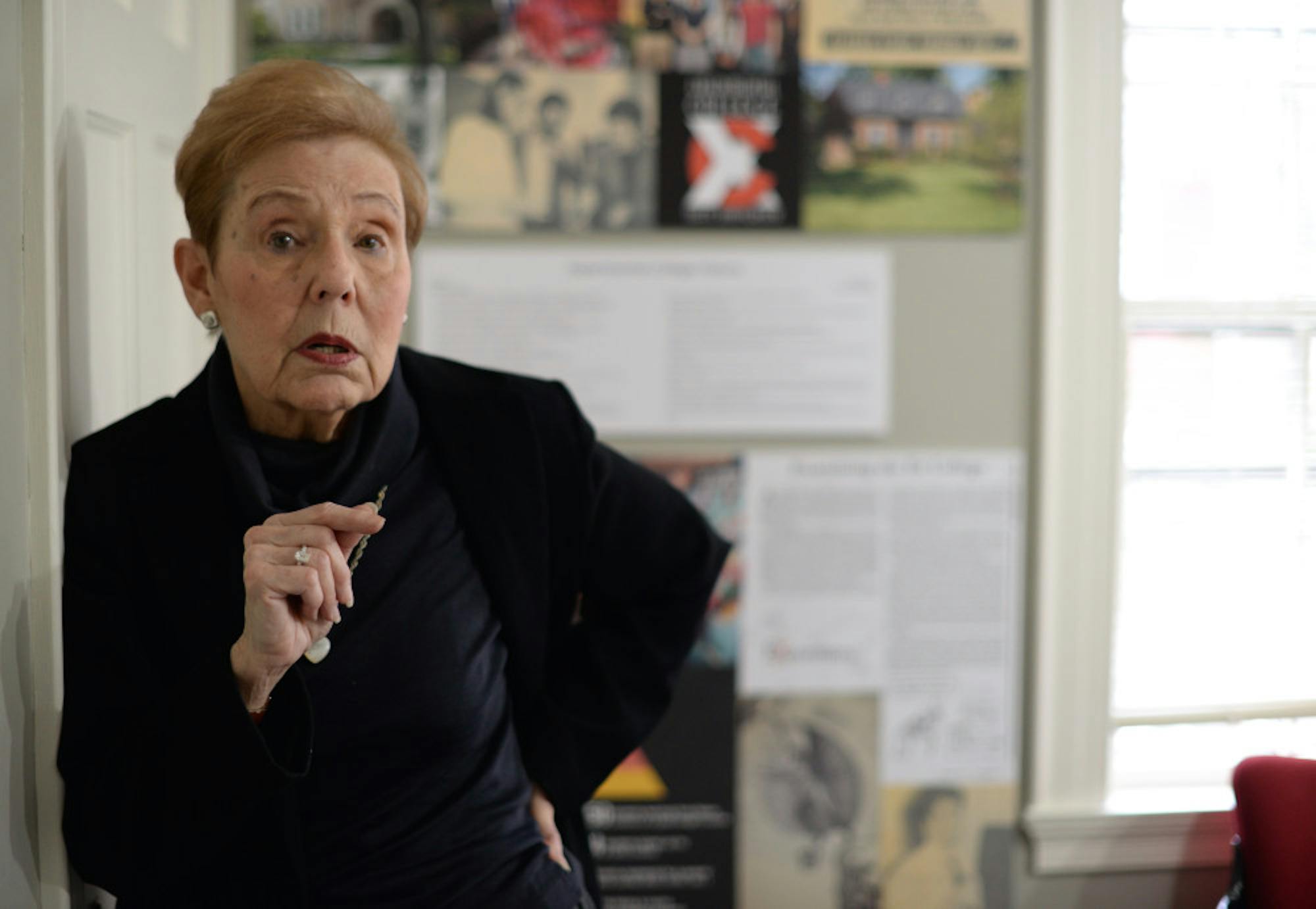After 40 years of service, Robyn Gittleman retired from her position as Director of the Experimental College (ExCollege) on December 31, 2015.
Gittleman explained that she became Director of the ExCollege and the Associate Dean of Undergraduate Education in 1975, about five years after her start as a part time employee in the college. She noted that in the program's early years, it had minimal leadership structure in place.
“When I came, there was only a faculty head of the ExCollege board, and no set director and there were two coordinators," Gittleman said. "One was the administrative coordinator, [who] did the books and all the administrative work, and I did the academic work.”
The ExCollege was founded in 1964 as the first-ever university community to include students in the program's governance, according to the ExCollege website.
“People often ask how things have changed, and I guess my general answer is I think the model for the Tufts ExCollege is lovely and wonderful," Gittleman explained, highlighting the ExCollege as a student-inclusive organization. "All that happens is we continue to be student-focused, and when I came, there were already students on the board and students teaching; all I did was sort of tweak things to make sure that that continued."
Gittleman noted that in its initial years, the ExCollege served as a catalyst for change on campus, introducing majors such as Peace and Justice Studies and Women's Gender and Sexuality Studies to the university.
Beyond her role in the ExCollege, Gittleman was "instrumental" in the formation of these programs, along with being influential in creating the Communication and Media Studies program, now the Film and Media Studies program, the Osher Lifelong Learning Institute and the Explorations and Perspectives First-Year Advising Programs, according to a Tufts Alumni biography of Gittleman.
According to Sol Gittleman, Robyn Gittleman’s husband of 59 years and a Tufts professor of 52 years, his wife’s impact on the ExCollege, and the university as a whole, was due in part to her emotional intelligence.
“That’s what she had—the ability to get people to do what she wanted them to do without them feeling upset or manipulated or anything," Sol Gittleman, who retired last year, said. "She was able to get people to do things; you had to have the right personality, you had to have the right temperament and the ability to work with people, he added.
This sentiment was echoed in an April 2000 Tufts Daily Editorial titled "Robyn Gittleman Connects Tufts to the Past and Future" which highlighted Gittleman's ability to connect with students and promote social change.
"Not only is Gittleman the Dean of the Experimental College, a major advocate for student interests and concerns, and a knowledgeable campus personality, but she is also a fascinating woman who once grappled with the clash between career and family during the rise of the feminist movement," according to the Editorial.
According to Sol Gittleman, his wife has left behind a “tremendous legacy” on the ExCollege.
“There are so many generations of students out there who took their first course at the ExCollege, and took a course that changed their lives," Sol Gittleman said. "That’s what you hear a lot from students: 'The ExCollege course I took changed my life.'”
Howard Woolf, the current director of the Experimental College and Associate Dean of Undergraduate Education, further expressed Gittleman's impact on the ExCollege.
"[In 1979] the ExCollege became chartered as a permanent department," Woolf said, noting that this monumental moment served as Gittleman’s signal achievement in the earlier years of the program.
"What that meant was, the ExCollege wasn’t an experiment anymore, wasn’t going to be something where it would live or die on the whims of whoever was going to be president, dean; the money was, in fact, hard budget," Woolf said. "We get an operating budget every year, like any other department.”
According to Woolf, Gittleman was constantly focused on moving the Experimental College forward.
“She kept pushing the envelope—expanding the involvement of students and expanding the concept of participatory education; by that, I mean making sure that the classes we taught weren’t just interesting subjects, but they were taught in a different way than traditional courses," Woolf said. "Classes would always be kept small, and they would be interactive; they would be discussion based, project based, and not lectures.”
Moving forward, Woolf shared that he hopes to continue to solidify the ExCollege’s position in the Boston professional community. He explained that each semester, the ExCollege receives over 120 course proposals, and about 22 are eventually selected, Woolf said.
Woolf also hopes to work with Tufts’ graduate schools and create slots for advanced graduate students to teach in the ExCollege.
“In some ways I see my job as continuing to do the work that Robyn laid down but expanding it in a new era, because things are changing so dramatically, so quickly, driven in large part by technology, that I want to make sure we keep up and, in some ways, keep ahead of the crowd,” Woolf said.
Robyn Gittleman shared that she is still in touch with the ExCollege and has spent her recent retirement traveling with her husband and meeting with alumni groups.
When asked about her hopes for the future of the ExCollege, Gittleman emphasized the importance of maintaining the program's student-centered nature.
“My hope would be that it can be as student-focused and as strong and vital as it is now,” Gittleman said. “It’s very much a part of the university, a part of the undergraduate experience.”
Robyn Gittleman leaves lasting impact on Experimental College, Tufts community

Former Director of the ExCollege Robyn Gittleman on Jan. 26, 2016.





